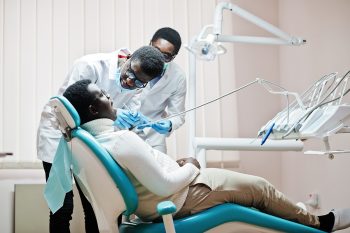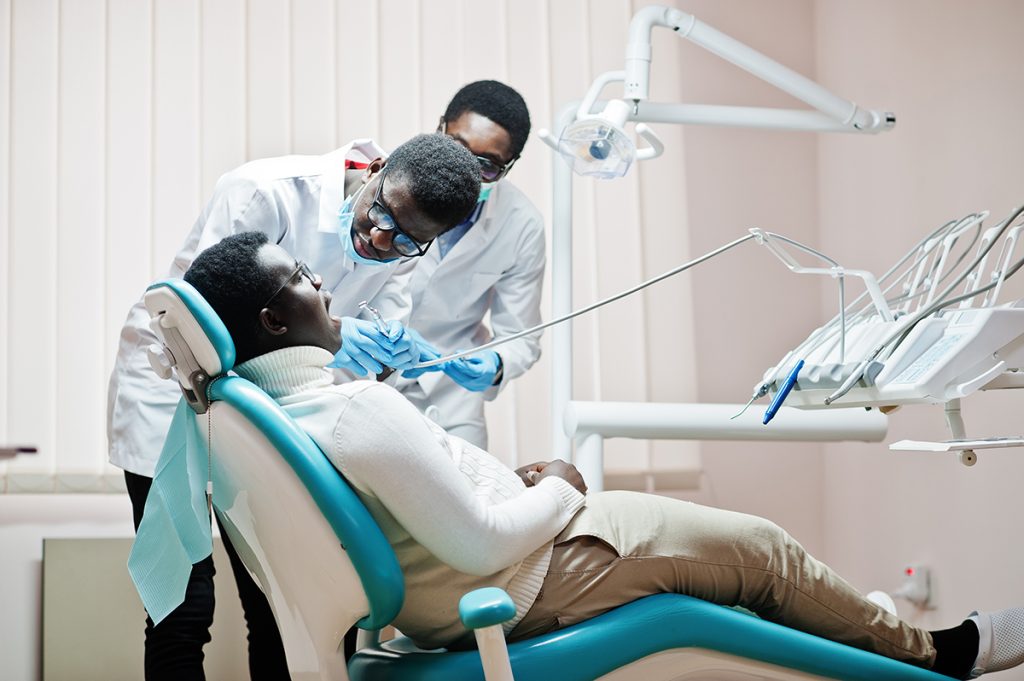is a medical specialty focused on the diagnosis, prevention, and treatment of oral and dental conditions. Dentists are healthcare professionals who specialize in maintaining and improving oral health, which includes the health of teeth, gums, and the related structures of the mouth. Here’s a detailed overview of dentistry, common diagnostic procedures, and tips on how to stay healthy:
A dentist is a healthcare professional who:
- Diagnoses Oral Conditions: Identifies problems related to teeth, gums, and other parts of the oral cavity.
- Treats Dental Issues: Provides treatments for various dental conditions, including fillings, crowns, root canals, and extractions.
- Performs Preventive Care: Offers preventive care services like cleanings, sealants, fluoride treatments, and patient education to maintain oral health.
- Enhances Aesthetic Appearance: Conducts cosmetic procedures such as teeth whitening, veneers, and orthodontics to improve the appearance of teeth.
- Manages Oral Health: Advises patients on proper oral hygiene practices and manages overall oral health care.

Diagnostic Procedures
- Dental Examination:
- Visual Inspection: Dentists perform a thorough visual inspection of the teeth, gums, tongue, and other oral structures to identify any signs of decay, disease, or abnormalities.
- Palpation: Dentists may palpate (feel) the tissues in the mouth to detect any abnormalities or areas of concern.
- Dental X-Rays:
- Bitewing X-Rays: These show the upper and lower back teeth and help detect decay between teeth and changes in bone density caused by gum disease.
- Periapical X-Rays: These provide a view of the entire tooth, from the crown to the root, and are used to detect issues below the gum line, such as abscesses or impacted teeth.
- Panoramic X-Rays: These provide a broad view of the jaws, teeth, sinuses, and nasal area, useful for detecting cysts, tumors, bone abnormalities, and impacted teeth.
- Intraoral Cameras:
- Digital Imaging: Intraoral cameras provide high-resolution images of the inside of the mouth, helping dentists diagnose problems more accurately and educate patients about their oral health.
- Periodontal Probing:
- Gum Measurements: Dentists use a periodontal probe to measure the depth of the pockets around the teeth to assess the health of the gums and diagnose periodontal (gum) disease.
- Diagnostic Casts:
- Dental Impressions: Dentists take impressions of the teeth to create diagnostic casts (models) that help in planning treatments, such as orthodontics, dentures, or restorative work.
Tips for Heart Health
Brush Regularly: Brush your teeth at least twice a day with fluoride toothpaste to remove plaque and prevent cavities.
Floss Daily: Floss between your teeth daily to remove plaque and food particles from areas your toothbrush can’t reach.
Regular Dental Visits: Visit your dentist for regular check-ups and professional cleanings every six months or as recommended.
Healthy Diet: Eat a balanced diet rich in fruits, vegetables, whole grains, and lean proteins. Limit sugary snacks and drinks, which can contribute to tooth decay.
Hydrate: Drink plenty of water, especially after meals, to help wash away food particles and bacteria.
Avoid Tobacco: Avoid smoking and chewing tobacco, which can cause gum disease, tooth decay, and oral cancer.
Use Mouthguards: Wear a mouthguard during sports and recreational activities to protect your teeth from injury.
Limit Alcohol: Excessive alcohol consumption can lead to oral health problems, including gum disease and mouth cancer.
Replace Toothbrush Regularly: Replace your toothbrush every three to four months or sooner if the bristles are frayed.


